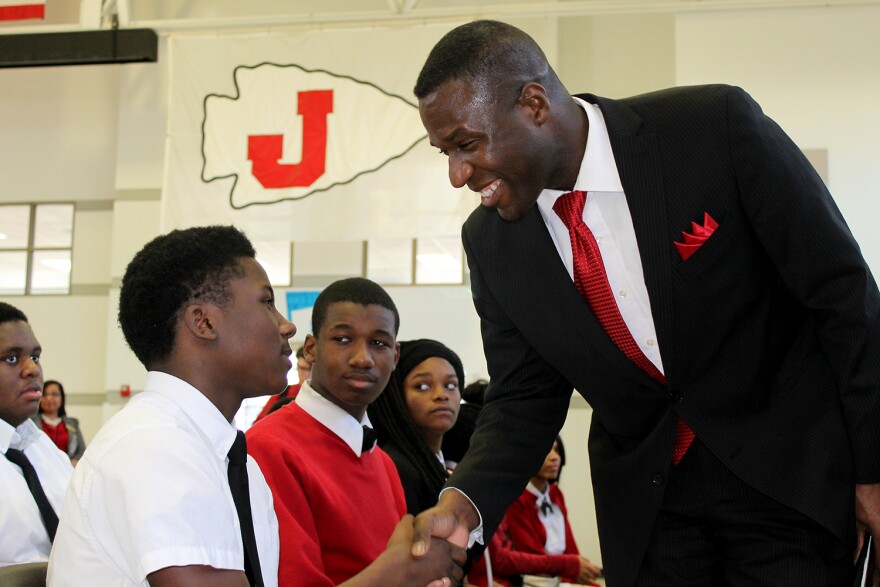Earlier this week, Markus Keys began working for St. Louis-based Daugherty Business Solutions as an associate software engineer. The annual salary: $50,000. That’s even though Keys just graduated from Jennings High School in May 2020.
A former teacher recommended STL.works to Keys as a way to gain experience and enter the job market soon after high school graduation.
“Once I heard that you’re going to go through training for a couple months, and then you’re going to go into an apprenticeship, and then … I was going to have a full-time job, I’m like, ‘Yes, this is a great opportunity for me to have a career starting off that I can use to do whatever I want in the technical field,’” Keys said.
Keys’ attitude made him a great hire, said Lee Metcalf, a vice president at Daugherty Business Solutions. The STL.works program, which includes mentoring and training on such topics as making eye contact and understanding corporate culture, helped with the rest.
“That energy came through right from the first day we met him, but then he needed some help,” Metcalf said. “He was earnest and outgoing, and open and interested. And so we laid out a game plan and he embraced it. He worked hard to move his skillset up, and every day we felt better and better about it. We’re delighted to have him as one of our teammates full time now.”
Launched in the fall of 2019 by the Regional Business Council, the STL.works initiative seeks to address the shortage in skilled labor by connecting people with jobs that require minimal training and no four-year degrees. People can typically start in 12 months or less and earn an average of $60,000 with benefits.
The 2021 State of the St. Louis Workforce Report showed a big — and increasing — demand for skilled labor. It found that 43% of available jobs in the St. Louis area are in the skilled labor market.
Art McCoy leads STL.works. The former superintendent of the Jennings School District and, before that, the Ferguson-Florissant School District, has been involved with the initiative since its inception.
“Many businesses need diversity and they need more workers. So instead of waiting for people to graduate, why not find them while they're in middle school and high school and then walk with them for three to four years, teach them and expose them to the culture of their corporate climate, and then ultimately help them see success,” McCoy explained on Thursday’s St. Louis on the Air.
In addition to jobs in technology, STL.works connects people with careers in health care, advanced manufacturing, the trades and public safety.
“We are just making sure that we redesign this whole effort of educating people for careers with a livable wage so that we can have inclusive prosperity,” McCoy said. “We're the ones right now that are on the ground doing it with school districts and with corporations matching them.”
McCoy also said the initiative speaks to the reality of what businesses must do today to land quality workers.
“The old model was you post the position and pray for the right applicant and then you interview. That day is dead and done,” McCoy said. “Now we are meeting the people going to where they are. … It’s no more post and pray. We make the commitment and we make it happen.”
“St. Louis on the Air” brings you the stories of St. Louis and the people who live, work and create in our region. The show is hosted by Sarah Fenske and produced by Alex Heuer, Emily Woodbury, Evie Hemphill and Lara Hamdan. Jane Mather-Glass is our production assistant. The audio engineer is Aaron Doerr.






